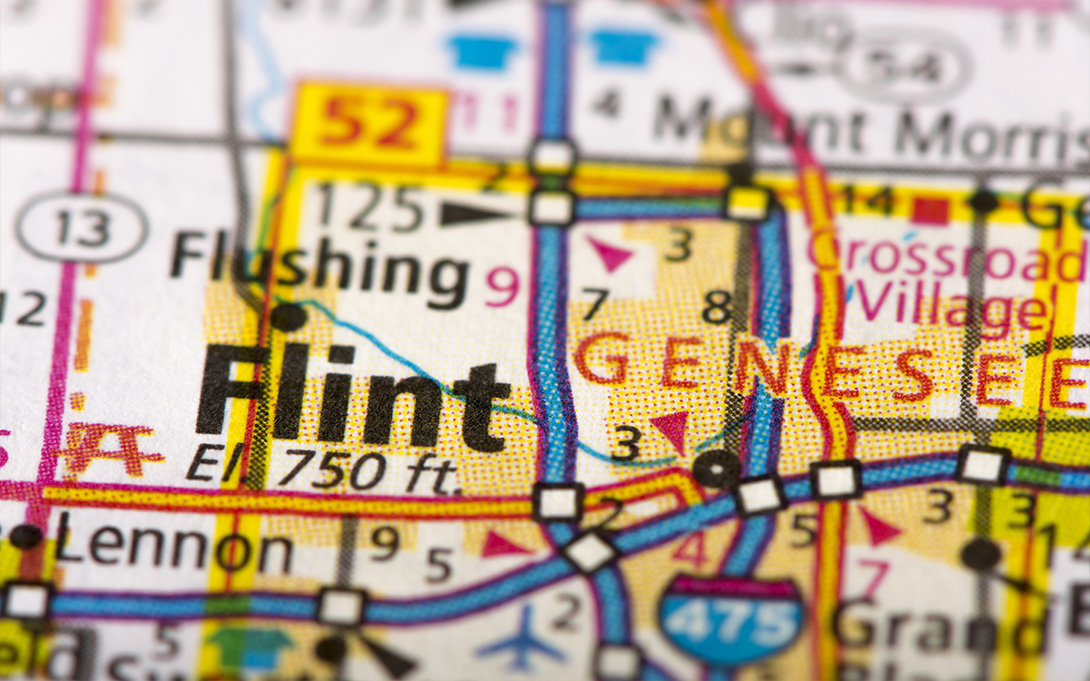
More than half of Flint residents favor reparations for Black Americans, although levels of support vary depending on whether the proposal refers to reparations as a broad concept or specific reparative policies like cash payments or financial support for housing and education.
A new report from the University of Michigan’s Center for Racial Justice summarizes Flint residents’ attitudes about reparations, based on a representative survey conducted by the Michigan Metro Area Communities Study.
The survey shows 53% of Flint residents support the idea of governments making amends to Black Americans, while 22% neither support nor oppose it, 22% oppose it, and 3% don’t know or didn’t answer the survey question. However, a larger share of Flint residents (71%) support at least one of the specific reparative policies targeted toward individuals.
Among the Flint residents who opposed the general idea of reparations, 30% supported the specific action of governments offering financial assistance for buying or improving a home, 26% were in favor of financial support for postsecondary education, 26% supported free health care, and 17% supported the idea of cash payments for Black Americans.
“Reparations is where history meets action,” said Erykah Benson, a research fellow at the Center for Racial Justice. “The findings show how language plays a key role in attitudes toward reparations. It reveals how many Flint residents recognize that the impact of structural racism, past and present, extends to various areas of society, including as health care, homeownership, business ownership, wealth-building, criminal justice and more.”
Benson co-authored the report, “Forty acres and a mule? How Flint residents believe the government should repay Black Americans,” with Jasmine Simington, a research fellow at CRJ.
Residents and community leaders in Flint are working with U-M to explore what community-based reparations for Black residents might look like, as part of a national reparations project called Crafting Democratic Futures.
In the Michigan Metro Area Communities Study, reparations are defined as governmental action to make amends to Black Americans for the ongoing harm caused by slavery and more recent discriminatory policies. The survey asked about the general idea of governments making amends, as well as specific reparative policies that are either aimed at individual Black Americans or larger systemic changes.
“This report offers nuanced insights into how Flint residents think about reparations, whether that’s in the form of cash payments, financial assistance for improving or buying a house, investing in historically Black neighborhoods, or other options. We can focus on community-based reparations proposals that align with Flint residents’ priorities,” said Asa Zuccaro, director of the Latinx Technology and Community Center in Flint and a community fellow for the Crafting Democratic Futures project.
Race, education and income figured prominently into Flint residents’ attitudes toward reparations, with Black residents, residents with higher incomes and residents with more formal education showing higher levels of support for efforts to make amends to Black Americans.
About 57% of Flint’s more than 79,800 residents are Black, and about 33% of residents are white. More than two-thirds of the city’s Black residents support reparations (67%), compared to just under one-third (31%) of white residents.
Flint residents with a bachelor’s degree or more higher education are more likely to support reparations (74%), compared to residents with some college (60%) and residents with a high school education or less (43%). Residents with a household income of at least $60,000 are more likely to support reparations (73%), compared to residents with an income between $30,000 and $59,999 (46%) and those with an income of less than $30,000 (50%). The median household income in Flint is $32,350.
Options for individual-level amends asked about on the survey included:
- Financial support for postsecondary education (61% of Flint residents support this approach)
- Financial assistance for buying or improving a home (61% support)
- Financial support for Black-owned businesses (60% support)
- Free health care (60% support)
- Land grants (54% support)
- Cash payments (51% support)
- Baby bonds, where the government establishes a savings account for a newborn and invests in it throughout their childhood (48%)
A majority of Black Flint residents, the intended beneficiaries of the reparations policies under consideration, support cash payments (73%). An even greater proportion of Black residents (78%) support reparations in the form of financial assistance for buying or improving a home, financial support for postsecondary education (77%), financial support for Black businesses (75%) or free health care (74%).
Options for systemic-level amends asked about on the survey included:
- Investments into historically Black neighborhoods harmed by economic and environmental discrimination (59%)
- Expedited review and expungement of eligible criminal records for Black Americans (52%)
- Creation of an accountability commission that seeks to hold governments accountable for the ways that slavery and discriminatory policies have harmed Black Americans (52%)
“To Flint residents, reparations doesn’t mean one thing,” Simington said. “There are a variety of approaches local and national governments can take to making amends to Black Americans at an individual level or through systemic change. The approaches need not be mutually exclusive, and residents’ priorities should guide efforts.”
You can read the report here.
The article was written by Lauren Slagter, Poverty Solutions.
